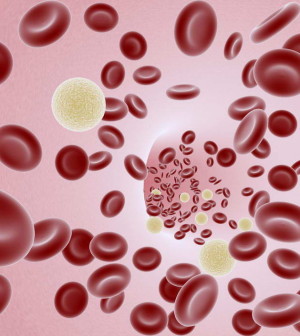- Could Your Grocery Store Meat Be Causing Recurring UTIs?
- Are You Making This Expensive Thermostat Error This Winter?
- Recognizing the Signs of Hypothyroidism
- 10 Strategies to Overcome Insomnia
- Could Artificial Sweeteners Be Aging the Brain Faster?
- Techniques for Soothing Your Nervous System
- Does the Water in Your House Smell Funny? Here’s Why
- Can a Daily Dose of Apple Cider Vinegar Actually Aid Weight Loss?
- 6 Health Beverages That Can Actually Spike Your Blood Sugar
- Treatment Options for Social Anxiety Disorder
Thought Processing a Concern of Parkinson’s Patients, Study Says

Declines in thinking skills could have a greater impact on Parkinson’s disease patients’ ability to converse than physical problems, according to a British study.
“Around 70 percent of people with Parkinson’s have problems with speech and communication, which can really impact their quality of life,” said lead investigator Maxwell Barnish, formerly of the University of East Anglia, in England.
“Researchers and clinicians have in the past focused on the physical problems patients have with making their speech clear,” he explained in a university news release. “But patients themselves say the problems are more complex and are more to do with . . . not being able to think quickly enough to keep up with conversations or not being able to find the right words.”
Cognitive impairment is the general term for these thinking difficulties. And patients say “this has the biggest impact on their ability to communicate in everyday life,” Barnish said.
He and his colleagues reviewed 12 studies that included a total of 222 Parkinson’s disease patients. They found that both thinking and physical problems are associated with speech difficulties, but that patients with greater mental decline had more difficulty conversing.
The findings appear March 18 in the Journal of Parkinson’s Disease.
Researcher Katherine Deane, of the University of East Anglia, said in the news release, “What this research tells us is that speech and language therapists need to assess the [thinking] problems of people with Parkinson’s as well as their speech clarity when trying to improve everyday communication.
“It may be that patients who are struggling with thinking quickly need different communication strategies to help them in everyday life,” Deane said.
More information
The U.S. National Institute of Neurological Disorders and Stroke has more on Parkinson’s disease.
Source: HealthDay
Copyright © 2026 HealthDay. All rights reserved.










